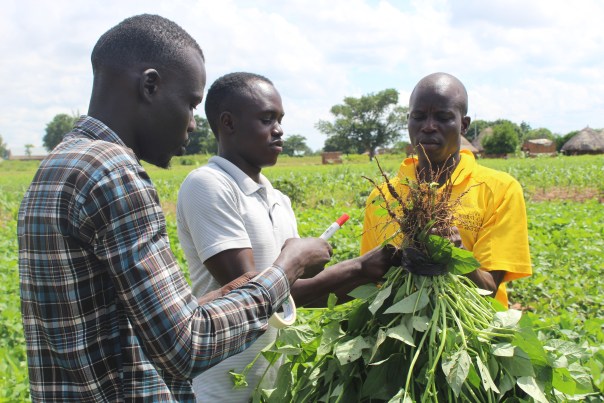
By Douglas Olum
At mid-morning on Thursday, May 14, 2020, and under the sun’s sharp burning rays, small groups of students banned from Uganda Christian University (UCU) under government COVID19 guidelines approached the main gate in Mukono. Students trickled in and out of the university, undergoing hand sanitizer spraying and temperature check exercises before entering.
As with all Ugandan universities since the country’s lockdown and university shutdowns started in late March, the students faced health scrutiny by university security officers and a medical worker. The students were hungry – struggling for roughly eight weeks without access to the regular university meals of tea, bread, rice, beans and, on occasion, chicken. While not the same as regular consumption, the UCU Office of the Director of Student Affairs provided some food relief.
The university’s intervention, supported by the Inter-Religious Council of Uganda, responded to television and news reports that revealed that university students were starving in nearby hostels, caught by the lockdown with no public transportation to leave. The news reported by NTV Uganda and the Daily Monitor newspaper, coupled with direct phone calls to the Guild President, Timothy Kadaga, prompted an the necessary intervention.
An estimated 160 UCU students were stuck in various hostels and rentals around Mukono. At least 81 students got the first batch of the relief package which included; 10kg (22 pounds) bag of maize flour, a carton of 124ml (4.23 ounces) boxed milk, beans, powdered milk, cooking oil, (1kg or 35.3 ounces/2 lb.) of sugar and a bar of soap.
Students were interviewed anonymously to avoid shame that most felt about receiving assistance. They came, they said, after exhausting all other possible options to survive.
“I had just received my transport money to return home that evening when the president [Yoweri Kaguta Museveni] announced the ban on public transport,” one of them, a second-year Bachelor of Civil and Environmental Engineering student, said. “I had to use the money for upkeep but it even got finished within a week. I called home again and I was sent some more money, which also got finished. When I called again, I was told to wait because there was no money.”

For more than a week prior to the time of the food relief distribution, the 22-year old said he depended on his friends and well-wishing neighbors.
Just like him, another beneficiary who is on the UCU Sports Bursary, and residing at the St. Michael Historical Hostel, said he lived on porridge for three days and almost died. He recounted:
“My tummy was grumbling. My joints were weak. I kept turning in my bed, trying to find a position in which my tummy would stop hurting to no avail. I got up and tried to make porridge again, but there was no more sugar in the room. At that point, my body was shaking like I was standing on something vibrating. I fell back to bed and that was when I started thinking of alternative options like contacting the guild president.”
At that point, the student said he came to realize that food was not just mere quench for hunger, but life itself.
A female student pursuing a Bachelor of Business Administration echoed these thoughts. She said: “The package may appear small but it means so much to me. At least I can be sure that I will feed myself and live for some time while I explore other options and wait for the end of the lockdown.”
A second batch of students received portions on Tuesday, May 19, taking the total to 150 beneficiaries. They were humbled and grateful, they said.
++++
To support Uganda Christian University programs, students, activities and services, go to www.ugandapartners.org and click on the “donate” button, or contact UCU Partners Executive Director, Mark Bartels, at m.t.bartels@ugandapartners.org





You must be logged in to post a comment.